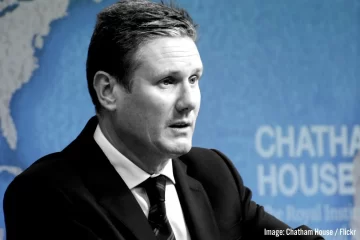Students beginning undergraduate study from September will face a massive increase in how much of their university loans they need to repay, following changes made by the government to student finances.
Whereas students currently face the prospect of having their debts cleared after 30 years, students starting this in September will be saddled with their student loans for an extra 10 years!
The new plans will ensure that unless students are able to pay off the full amount, they will be expected to pay their debt – and the eye-watering interest incurred – for 40 years.
To add insult to injury, the threshold at which graduates begin repaying the loan, which is tied to one’s salary, is set to be lowered by nearly two thousand pounds to £25,000 per annum.
So not only will students be paying off their debt and interest for far longer, they will also be forced to start paying from an even lower salary.
Attack on graduates
Fundamentally, this new policy amounts to nothing less than an attack on working class graduates, who have attended university with the hopes of broadening their horizons and seeking better opportunities in the job market.
This change, announced in the midst of acute hardship for many, will see graduates handing over even more of their income to these glorified loan sharks.
Yet the Tories cry: “Do not fear! There’s something in it for you as well!” In an act of unparalleled generosity, the parasites at the helm of this operation have granted a small concession: promising to lower the interest rate on university loans by 3%.
However, on inspection, this remains a rotten deal. Student loan repayments are tied to the rate of inflation, which is currently at its highest level since the early 1980s, and shows no signs of coming to a halt.
This is no consolation to working class graduates, who will be caught in a hamster wheel trying to repay an ever-growing loan.
Clearly, this policy has one purpose: to further shift the financial burden of the crisis-ridden Higher Education sector – itself a product of the capitalist crisis – onto the working class.
The children of the super-rich – who have no need for loans and bursaries – will remain unaffected, while those from working class backgrounds trying to better their chances in life will be crippled by a lifetime of debt.
Graduate tax?
Martin Lewis – the so-called “consumer finance champion” who has carved out a name for himself as a champion of the poor and downtrodden – has also joined the conversation.
He admits that for many people, these changes will mean that many workers will be paying more than double what they would have under the previous model.
Unfortunately however, Lewis has provided cover for the Tories’ attacks, by insisting that the loans shouldn’t be “demonised as debt” but thought of as a “graduate contribution system” or a “graduate tax”.
Instead of facing the material issues head on, his ‘solution’ is to simply change our perspective. This is no doubt an incredibly agreeable solution for the ruling class!
Perhaps we should also change our perspective about rampant inflation too. We could think of it as a ‘purchasing contribution system’ or some other such nonsense.
But simply renaming the issue does nothing to address it. A degree no longer guarantees a high paying job. Instead we are seeing many graduates entering the workforce at close to minimum wage, who will be squeezed even further by this policy.
Dressing this policy up in this nice language is not only insulting, but it completely distracts from this attack on the living standards of the working class.
Crisis in education
Capitalism has reduced the question of university for the working class to a purely economic one. Instead of being viewed as an opportunity to better one’s understanding of the world and advance humanity’s quest for knowledge, courses are being pushed by university bosses as merely a profitable investment.
And indeed, for many, having a degree is essential to navigate the intrepid job market.
An education for the sake of learning – for pursuing an area of passion – is effectively becoming the reserve of those who can afford it.
Every facet of the education system is in dire crisis. The crisis in higher education is ultimately down to marketisation – the fact that universities are treated as a cash cow for well-paid managers and profiteers.
It is for this same reason that tuition fees are continually creeping higher; that university staff wages continue to fall through the floor due to cuts and inflation; that courses deemed ‘unemployable’ are being cancelled left right and centre.
Free education
Education benefits the whole of society. It maximises our potential for innovation, efficiency, and creativity. Universities should therefore be treated as real public institutions, not vehicles for profiteering.
It is clear that there is only one way forward. Instead of making students, workers, and graduates pay for the crisis in education, we must expropriate the super-rich, and use their wealth to fund high-quality, free education.
Universities must be placed under the democratic control of the staff and students, to ensure these funds are used in the best way possible.
Only under such a programme – of kicking capitalism out of education – can we save our universities.



